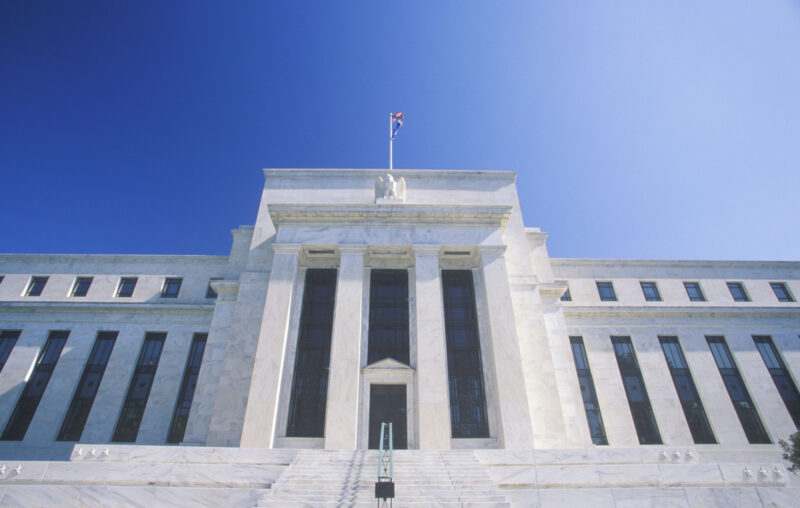Without Rules, the Fed Rules

Writing in the Wall Street Journal, Alan Blinder notes the ambiguities in Fed Chairman Jerome Powell’s recent address in Jackson Hole:
[Powell] can’t give much forward guidance when he doesn’t know what comes next. The Fed is truly data-dependent now, in a way it wasn’t a year ago, and no one knows what the next few months will bring.
Blinder’s analysis of Powell’s strategy is worth careful consideration, but even more important is the worrying truth implicit in his comment: The Fed is flying by the seat of its pants.
On a fiat money standard, the central bank’s chief task is to define money’s purchasing power. This means creating what economists call a nominal anchor: credibly committing to markets that a variable under its control, such as the price level, will follow a predictable path. The best way to achieve this is with a monetary rule. The Fed could, for example, announce a new target for the Personal Consumption Expenditures Price Index (PCEPI), specifying its desired level (and implied growth rate) over a definite time period.
The Fed hasn’t done this, of course. It doesn’t want to be bound by a rule. That would make it too easy to judge the Fed’s performance. It would also constrain the Fed in other ways, perhaps limiting forays into fashionable yet tangential topics such as employment equity or climate justice.
Robert Hetzel recognizes the importance of rules-based policy in his important new book, The Federal Reserve: A New History. Fed monetary policy is discretionary, allowing it to revise its actions “period by period.” This allows it to “control the historical narrative” by convincing the public it is responding “optimally to shocks arising externally.” Hence the perennial guessing game played by FOMC members and market participants, in which market participants devote enormous time and effort to understanding the former, and FOMC members devote enormous time and effort to not being understood.
Things would be very different with a genuine monetary policy rule, which “requires examination of how the rule produces a mutual interaction between the behavior of the Fed and the behavior of the economy,” Hetzel contends. “One can then learn from the past about which rules stabilized or destabilized the economy.” But this is precisely what the Fed doesn’t want. Specifying the monetary standard requires committing to a rule. Committing to a rule significantly lowers the cost of evaluating Fed policy. And lowering the cost of evaluating Fed policy could make it very clear to a great many people that the Fed is up to no good.
The Fed has purposefully strayed from its limited mandate of full employment and price stability. It explicitly targeted the minority unemployment rate, despite the fact that the difference between minority unemployment and average unemployment is structural and thus beyond the scope of monetary policy. Instead of stabilizing the price level, it joined global efforts to fight climate change, despite lacking statutory authority to pursue that goal. It can get away with these things because it refuses to specify the nominal anchor that undergirds the monetary standard. Discretion allows technocratic tinkering. In contrast, rules require strict discipline.
Blinder concludes his article by promising readers that they “will be hearing more of this debate in coming months.” Powell says the Fed will proceed carefully. But, as Blinder notes, nobody is quite sure “what ‘proceeding carefully’ will mean in practice.” Indeed, nobody is sure because Fed officials want us to be unsure. Economic stability and the welfare of the general public are best achieved by rules. But power, prestige, and plausible deniability are best achieved by discretion. Somebody should remind the Fed just whose interests they’re supposed to serve.









